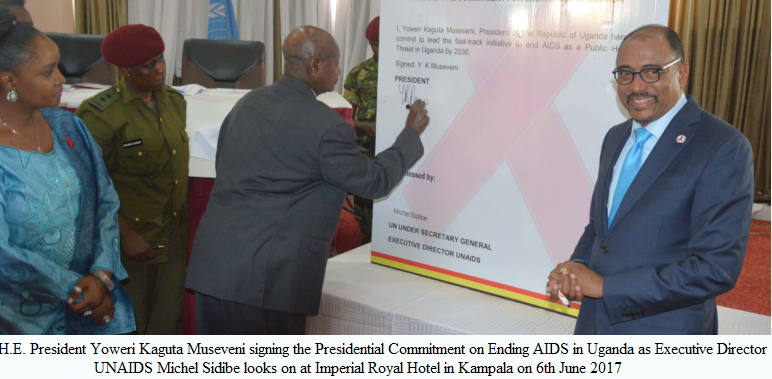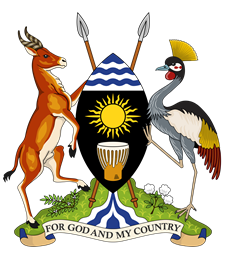Download the PFTI Handbook 2020
Download the PFTI Handbook 2022
Download PFTI Reports
Presidential First Track Initiative[PFTI]
On June 6th 2017, the President of the Republic of Uganda, His Excellency General Yoweri Kaguta Museveni, launched the “The Presidential Fast-Track Initiative on ending AIDS in Uganda by 2030.” This is the first such initiative in Africa and the entire world.
Anchored in “A Presidential Handbook”, the initiative spells out plans to tackle HIV &AIDS in Uganda through a five point plan to;
- Engage men in HIV prevention and close the tap on new infections particularly among adolescent girls and young women;
- Accelerate implementation of Test and Treat and attainment of 90-90-90 targets particularly among men and young people;
- Consolidate progress on eliminating mother-to-child transmission of HIV;
- Ensure financial sustainability for the HIV response; and
- Ensuring institutional effectiveness for a well-coordinated multi-sectoral response.
The UNAIDS Executive Director, Dr. Michel Sidibe, noted that Uganda is a model country in the fight against AIDS saying, “Ending AIDS is an investment in human dignity and not a charity.” He further said that Uganda has over one million people on treatment and this is key to achieve the 90-90-90 UNAIDS targets, which project that by 2020, 90% of all people living with HIV will know their HIV status, 90% of all people with diagnosed HIV infection will receive sustained antiretroviral therapy and lastly 90% of all people receiving antiretroviral therapy will have viral suppression.Dr. Sidibe emphasized the need for testing boys between the ages of 15-29 in order to curb transmission.
Over the years, Uganda has made progress in the fight against HIV. The country has registered significant reductions in new infections in the general adult population from 92,000 in 2010 to 53,000 in 2018. Further to this, new infections among children dropped from 26,000 in 2010 to 7,500 in 2018. Of the 1.4 million people living with HIV (2018), 1,167,107 are enrolled in care of whom 94% virally suppressed for those who took viral load test.
The Joint United Nations Programme on HIV/AIDS (UNAIDS) unites the efforts of 11 UN organizations—UNHCR, UNICEF, WFP, UNDP, UNFPA, UNODC, UN Women, ILO, UNESCO, WHO and the World Bank to lead and inspire the world to achieve its shared vision of zero new HIV infections, zero discrimination and zero AIDS-related deaths. It works closely with global and national partners towards ending the AIDS epidemic by 2030 as part of the Sustainable Development Goals.


